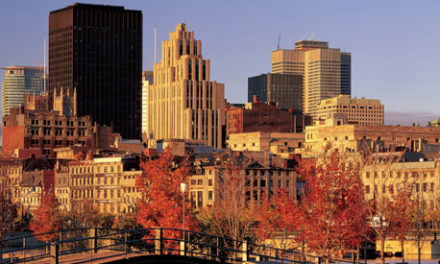SPRINGFIELD, Mass., June 13, 2014 /PRNewswire/ — MGM Resorts International (NYSE: MGM) today received a unanimous vote from the Massachusetts Gaming Commission (MGC) approving an agreement to award MGM Springfield a license to operate a resort casino in Downtown Springfield. This is the first approval of a casino license in the Commonwealth. The Commission’s decision comes after an extensive two-year process of hearings and background investigations culminating in a final week of hearings and deliberations.
MGM formally announced its interest in a resort casino in Springfield in August 2012. At one time there was a field of five companies vying for the sole Western Massachusetts casino license. The MGM Springfield site is located on approximately 14.5 acres of land between Union and State streets, and Columbus Avenue and Main Street.
Jim Murren, Chairman and CEO of MGM Resorts, said: “This is a great day for Springfield, the Commonwealth of Massachusetts and MGM. We’re proud of what our talented team and our many dedicated city and community partners have accomplished together. We thank the Massachusetts Gaming Commission for its thorough vetting process and look forward to continuing our work with Springfield Mayor Domenic Sarno and other Springfield and Western Massachusetts elected officials and governmental leaders, along with residents and businesses of Springfield and the region, as we move this project forward.”
Murren was joined by MGM Resorts President Bill Hornbuckle and MGM Springfield President Michael Mathis for today’s decision at the MassMutual Center. The crowd gathered included elected officials; civic, business and community leaders; and MGM Springfield supporters.
MGM Springfield, an $800 million investment, is designed to ignite an urban revival. MGM and its professional partners worked painstakingly to put together a design that celebrates the history of Springfield while moving the Gateway City into a new era of commerce and economic opportunity.
The integrated resort casino is designed to enhance the entire urban center of Springfield. The mixed-used development project calls for a 25-story 250-room hotel with world-class amenities including a spa, pool and roof deck; 125,000 square feet of gaming space with 3,000 slot machines, 75 gaming tables, a poker room and high limit VIP gambling area; about 55,000 square feet of retail and restaurant space that will accommodate 15 shops and restaurants; and a multi-level parking garage.
Plans also envision a high-energy dining, retail and entertainment district with an eight-screen cinema, bowling alley and an outdoor stage. This will be developed by Davenport Properties of Boston, MA, in partnership with MGM on land now occupied by the tornado-ravaged South End Community Center and Howard Street School.
Michael Mathis, MGM Springfield President, said, “MGM is very grateful to the MGC and most importantly to our supporters. Today’s decision says yes to jobs, yes to downtown revitalization, and yes to opportunity and hope. We have been, and will continue to be, a committed partner to the City and the Commonwealth. We have worked hard to develop the strong relationships necessary to create a world-class urban casino-resort proposal that will anchor a renaissance for an important Gateway City and the region around it. We now look forward to that becoming a reality.”
MGM Springfield will bring 3,000 permanent jobs and 2,000 construction jobs to Downtown Springfield. MGM has established a hiring goal of 35 percent of the workforce from the City of Springfield and 90 percent from a combination of Springfield and the region. Additionally, MGM Springfield has entered into surrounding community agreements with neighboring communities providing for tens of millions of dollars.
Mathis added, “The City of Springfield deserves a brighter economic future. Its residents spoke loudly when they voted yes for MGM Springfield in a July 2013 referendum. A successful repeal would mean the loss of good jobs, new economic development and a needed revenue stream. It would also eliminate the opportunity to recapture billions of dollars currently lost to neighboring states. MGM is ready to help the Commonwealth achieve these worthy goals.”
All casino projects in the Commonwealth still face the threat of a ballot repeal of the casino law. Attorney General Martha Coakley ruled last year that the repeal question was unconstitutional. Following an appeal by advocates of the repeal effort, the Supreme Judicial Court is expected to decide by July if the question may appear on the November ballot.
Because the repeal effort hangs in the balance, the MGC and MGM entered into an agreement to award the single Category 1 (resort-casino) license available for Region B (Western Massachusetts) contingent on the outcome of the repeal matter. The future date allows the postponement of the licensing and related fees until the repeal question is resolved.
About MGM Resorts International (NYSE:MGM)
MGM Resorts International (NYSE: MGM) is one of the world’s leading global hospitality companies, operating destination resort brands including Bellagio, MGM Grand, Mandalay Bay and The Mirage. The Company also owns 51 percent of MGM China Holdings Limited, which owns the MGM Macau resort and casino and is in the process of developing a gaming resort in Cotai, and 50 percent of CityCenter in Las Vegas, which features ARIA resort and casino.
For more information about the company please visit www.mgmresorts.com.
MGM SPRINGFIELD FACT SHEET
MILESTONE TIMELINE
- August 22, 2012 – MGM announced interest in Springfield.
- April 30, 2013 – MGM was chosen by Springfield to partner with the city, beating out Penn National and Ameristar. At one time there was a field of five companies vying for the sole Western Massachusetts casino license. Hard Rock lost its referendum in West Springfield and Mohegan Sun lost its in Palmer.
- May 1, 2013 – MGM Resorts International and the City of Springfield signed the Host Community Agreement (“HCA”) that calls for MGM Resorts to make upfront and advance payments, totaling $15 million to the City of Springfield. The upfront payment will be distributed to the city in installments during the construction phase of the project. When MGM Springfield opens for business, the city will receive in excess of $25 million annually in payments.
- July 16, 2013 – Springfield voters braved steamy temperatures to go to the polls and approve MGM Springfield in a referendum vote (58% to 42%) to develop and operate a resort casino in Downtown Springfield.
- December 23, 2013 – the Massachusetts Gaming Commission unanimously found the company a suitable candidate for a casino license in the Commonwealth.
- December 30, 2013 – MGM delivered its detailed response to the RFA-2 application for a Category One gaming license to the MGC. Each response was more than 7,000 pages within 17 binders. Packed in leather cases, each submission weighed 400 pounds.
- June 13, 2014 – Named winner of Region B casino license
- Summer 2014 – Commencement of Work (Pending outcome of gaming repeal matter)
- Early 2017 – Anticipated MGM Springfield opening
PAYMENTS FOR HOST AND SURROUNDING COMMUNITY AGREEMENTS
(Due following payment of the $85 million licensing fee to MGC)
- Springfield – $15 million upfront during construction period; $25 million annually during operations
- Longmeadow – $850,000 upfront; $275,000 annually – with open-ended legal fees
- West Springfield – $665,000 upfront (memorial avenue reconstruction plus consultant costs); $425,000 annually – with open-ended legal fees
- Agawam – $125,000 upfront; $150,000 annually
- Chicopee – $125,000 upfront; $150,000 annually
- Ludlow – $50,000 upfront; $100,000 annually
- Wilbraham – $50,000 upfront; $100,000 annually
- East Longmeadow – $50,000 upfront; $100,000 annually
- Holyoke –$50,000 upfront; $85,000 annually
Statements in this release that are not historical facts are forward-looking statements involving risks and/or uncertainties, including those described in the Company’s public filings with the Securities and Exchange Commission. The Company has based forward-looking statements on management’s current expectations and assumptions and not on historical facts. Examples of these statements include, but are not limited to, statements regarding the development of MGM Springfield and the expected timing of the Supreme Judicial Court’s decision on the gaming repeal question. These forward-looking statements involve a number of risks and uncertainties. Among the important factors that could cause actual results to differ materially from those indicated in such forward-looking statements include effects of economic conditions and market conditions in the markets in which the Company operates and competition with other destination travel locations throughout the United States and the world, the design, timing and costs of expansion projects, risks relating to international operations, permits, licenses, financings, approvals and other contingencies in connection with growth in new or existing jurisdictions and additional risks and uncertainties described in the Company’s Form 10-K, Form 10-Q and Form 8-K reports (including all amendments to those reports). In providing forward-looking statements, the Company is not undertaking any duty or obligation to update these statements publicly as a result of new information, future events or otherwise, except as required by law.
SOURCE MGM Resorts International












